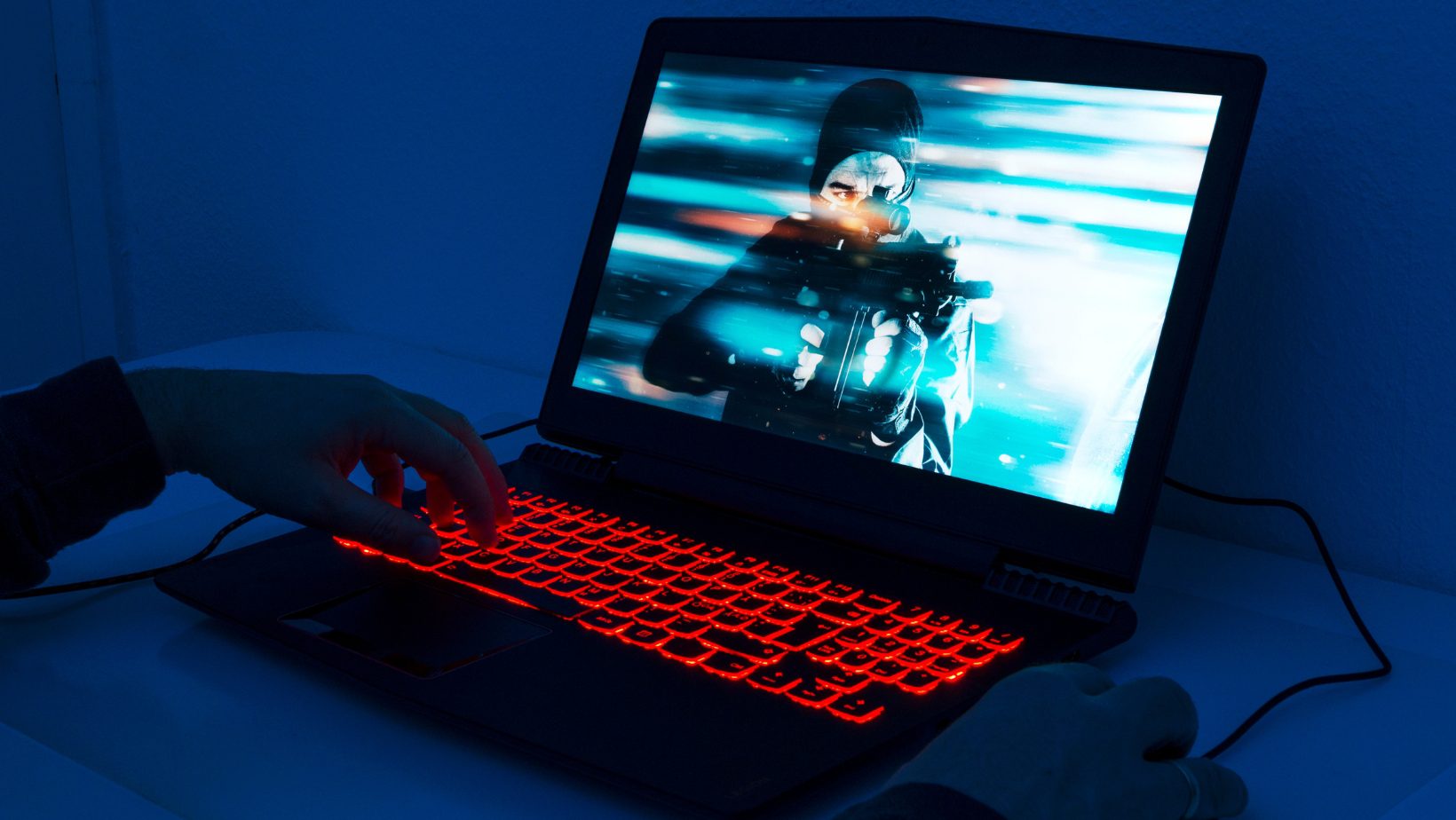Is it normal for gaming laptops to get hot? This is a common question among gamers and laptop users alike. As an expert, I can shed some light on this topic.
Gaming laptops are designed to handle the intense demands of modern games, which often require high processing power and graphics capabilities. With such powerful components packed into a compact form factor, it’s not surprising that gaming laptops can generate a significant amount of heat during operation.
In fact, it is perfectly normal for gaming laptops to get hot while running resource-intensive games or applications. The CPU and GPU work hard to render graphics and process data, leading to increased heat production. To counteract this, manufacturers incorporate various cooling mechanisms such as fans, heat sinks, and thermal paste to dissipate the heat efficiently.
If you notice your gaming laptop consistently reaching excessively high temperatures or experiencing sudden shutdowns due to overheating, it may be wise to address the issue. Regular maintenance like cleaning dust from vents and ensuring proper airflow can help prevent overheating problems in most cases.
Is It Normal for Gaming Laptops to Get Hot
As a gaming enthusiast, I’ve often wondered, “Is it normal for gaming laptops to get hot?” Well, the answer is yes! Gaming laptops are designed to handle high-performance tasks and graphics-intensive games. However, excessive heat can still be a cause for concern. Let’s explore some common causes of heat in gaming laptops.
Inadequate Cooling System
One primary reason why gaming laptops tend to get hot is an inadequate cooling system. These powerful machines generate a significant amount of heat due to their high-speed processors and dedicated graphics cards. If the laptop’s cooling system isn’t up to par or if the vents are blocked by dust or debris, the heat may not dissipate effectively, leading to increased temperatures.
To prevent overheating caused by an inadequate cooling system, it’s essential to keep your laptop clean and well-maintained. Regularly clean the vents and fans using compressed air or a soft brush to remove any accumulated dust. Additionally, consider investing in a cooling pad or external fan that can help improve airflow around your laptop.
Intensive Graphic Rendering
Another factor contributing to heat buildup in gaming laptops is intensive graphic rendering. Graphics-heavy games demand significant processing power from both the CPU (Central Processing Unit) and GPU (Graphics Processing Unit). This intense workload generates substantial amounts of heat as these components work tirelessly to render lifelike visuals and smooth gameplay.
While modern gaming laptops are equipped with advanced technologies like thermal management systems and efficient GPUs, prolonged hours of intense graphic rendering can still lead to elevated temperatures. It’s advisable not only to take breaks during extended play sessions but also adjust in-game graphics settings for better optimization and reduced strain on your hardware.
CPU and GPU Overheating
The central processing unit (CPU) and graphics processing unit (GPU) are vital components responsible for handling complex calculations during gameplay. However, these processors can reach high temperatures during intensive gaming sessions, especially if the laptop’s cooling system is overwhelmed or inadequate.
To prevent CPU and GPU overheating, it’s crucial to monitor their temperatures using software tools specifically designed for this purpose. Additionally, you can optimize your laptop’s power settings and reduce unnecessary background processes to minimize the workload on these components. Applying high-quality thermal paste to the CPU and GPU can also help improve heat transfer efficiency.

Factors Affecting Laptop Temperature
- Processor and Graphics Card: Gaming laptops are equipped with powerful processors and graphics cards that generate a significant amount of heat. The more demanding the game, the harder these components have to work, resulting in increased heat production.
- Cooling System: The effectiveness of a laptop’s cooling system plays a vital role in managing its temperature. Laptops typically employ fans and heat sinks to dissipate heat away from critical components. If the cooling system is not adequate or becomes clogged with dust over time, it can lead to higher temperatures.
- System Load: Running resource-intensive games or applications puts a heavy load on your laptop’s hardware, causing it to work at full capacity and generate more heat. Additionally, running multiple programs simultaneously can increase the overall system load and contribute to elevated temperatures.
- Environmental Factors: The external environment also affects laptop temperature. Using your laptop on soft surfaces like blankets or pillows restricts airflow and hampers proper ventilation, leading to increased heat buildup.
- Overclocking: Some gamers opt to overclock their laptops’ hardware for enhanced performance by increasing clock speeds beyond manufacturer specifications. While this can provide a noticeable boost in gaming performance, it also generates additional heat that exceeds normal operating parameters.
By understanding these factors affecting laptop temperature, you can better gauge whether your gaming laptop is experiencing normal levels of heat or if there may be underlying issues that require attention. Remember to maintain proper ventilation, keep your laptop clean, and monitor temperatures regularly for optimal gaming performance and longevity.




